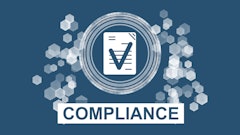
Anyone who has had a home built from the ground up, or who has done extensive remodeling, knows how difficult it can be to decide between keeping costs down by going with the basic offerings or adding to the looks or performance of certain items by upgrading them.
Take the appliances for example. A new home may come with a basic oven, dishwasher and refrigerator, all of which will be perfectly fine. But with a little extra investment you can get a double oven, a quieter dishwasher and a fridge with water and ice in the door. And for a larger investment you can get appliances with so many amazing features they practically do all the work for you.
In the end, it all comes down to what your needs are and how you plan to use them. After all, if you don’t plan to cook much there’s no sense in investing in the high-end oven (unless you’re trying to impress your in-laws).
Organizations with a heavy supply chain component face a similar dilemma. Often they have to choose between using the warehouse management system (WMS) module that is included with their enterprise resource planning (ERP) software or purchasing a more robust, best-of-breed WMS solution.
Here, too, there is no one right answer. It all depends on how your business operates, what your future goals are, and of course what your financial situation is. Less obvious (but often as important) are factors such as the cost of workarounds if your WMS lacks the functionality you need, how easily it integrates into your other systems, whether it will grow and adapt with you as your business changes and the potential impact on customer satisfaction if you make the wrong choice.
Following are eight questions that will walk you through some of the key considerations in order to come to the decision that best fits your organization.
Which company strategy does the WMS need to support? The first step is defining the operational demands and goals the solution must meet. It has to have the ability to influence your key performance indicators (KPIs) in a positive way, improving your business results and driving a higher ROI. Strategic questions to ask include: What are our customers expecting of us? What does the competitive landscape look like, and how will we differentiate ourselves from the competition? How experienced are we in supply chain execution and warehouse & fulfillment activities? How dynamic is our operation? How deep is our technical expertise?
What does our overall cost look like? The key here is to compare the advantages to be gained by putting in the ERP or WMS solution with the costs required for generating those benefits. For example, the WMS functionality in an ERP solution may not have an initial cost, but if it won’t yield any concrete operational improvements you haven’t gained anything. And the costs and risks for implementation, such as integrating it with your other software, not to mention the time management involved, may end up making it more costly to implement that solution than to do nothing. On the other hand, a best-of-breed WMS with a high initial cost that yields significant operational improvements may pay for itself very quickly, and yield better long-term results both operationally and financially. Factors to consider when determining the true cost of a WMS solution, either as part of an ERP system or stand-alone best-of-breed, include:
- Functional fit with the organization
- Operational effectiveness, i.e. how well it does what it’s supposed to do?
- Costs for order fulfillment
- Its effect on customer satisfaction
- Ability (as well as cost and time involved) to integrate with existing applications and modules
- Training fees and learning curve users can expect
Does the solution have sufficient functionality to meet our strategic goals? This is a very important point. No matter whether it’s free or costs very little, if the solution can’t meet the requirements defined in your business strategy—or better yet, exceed them—it won’t be worth the time and effort to implement. Moreover, it is essential that the solution have the ability to adapt quickly and profitably to your needs as they change.
One other important point to consider is the environment in which it will be used. Some warehouses and distribution centers are fairly simple in their operation. They don’t require a lot of functionality or adaptability because their rhythms are steady and predictable. In those cases, a WMS module that is part of an ERP solution will likely be sufficient. For those with more complex, dynamic environments, especially those involving eCommerce, a best-of-breed solution likely will be a better choice.
How well does your software provider know the supply chain industry? Insight into the expertise of the supplier’s warehouse management and logistics is a fourth and critical factor in your decision-making. You want to work with a provider that understands the complexities of distribution and logistics at a deep level, preferably one that came up through distribution rather than the manufacturing world. You’ll want them to be investing heavily in research and development that is specific to your business to ensure they are providing the solutions you need now and in the future.
Can you build a partner relationship with the supplier? When you are on the verge of purchasing a product that is transformational for your company, it’s necessary to consider your supplier as a partner. The reason is whether you’re talking about ERP or WMS, system implementation is no simple task. You need to define potential problem areas before your activities and your relationship with your customers are impeded. Moreover, the requirements of the customer are constantly changing. It is extremely important that your supplier can meet your expectations in terms of new technology, support, etc. when changes in the system are required.
Do you have the right technical tools (and personnel) at hand? Your internal resources’ technical capabilities should also factor into the decision. If you already have an ERP system installed, adding its WMS module will likely not be a stretch technically. A best-of-breed WMS, while more feature-rich, will likely also require additional technical skills.
Another technical consideration is that in some organizations the WMS solution will need to interact with existing applications (such as TMS, CRM, etc.). This integration is often built into best-of-breed WMS solutions because integration and communication with trading partners by EDI or other electronic means is required by definition. Integrating an ERP system’s WMS module may be considerably more difficult because those modules are designed primarily to work within the ERP system. The result is a need to hire or bring in additional technical expertise, adding to the cost and time to implement.
Finally, many warehouse operations, particularly those with a high picking volume and strict requirements in terms of packaging and shipping, cover advanced materials handling equipment. Such equipment includes conveyors, sorters, A-frame picking systems, pick-to-light or voice systems, etc. Most of the best-of-breed WMS suppliers do have extensive experience integrating their solutions with these types of equipment. This level of complexity is usually handled by a third party whenever a warehouse module of an ERP is used.
At what stage is the product, and what is its future? Understanding product maturity and future strategy must be a part of the evaluation process. Is the product time-tested and proven? Is there room for growth and evolution? Can it grow at the same pace as your organization? If you don’t pay the necessary attention to these questions you might choose a solution with a limited service life. Which means you will be back to square one in a few years.
For many ERP systems, the warehouse module is actually a new addition, often with limited functionality that’s best-suited to less complex business processes. For others it may have been around a while but has had limited investment/improvement over those years. Because of their focus, best-of-breed WMS solutions tend to have more emphasis placed on their functionality, and often have multiple ways of solving business requirements.
No matter which way you go, you want to be sure the solution provides all the details of an order, shipment and available inventory, and is able to respond quickly to customer demands. Without those capabilities, the solution is sure to fall short.
Is there support from a professional team during implementation—and beyond? ERPs and best-of-breed WMS solutions are complex products that touch a lot of different areas. As a rule they require specialized knowledge to be implemented effectively – knowledge your internal IT staff is unlikely to possess, no matter how technically proficient they are. You want to be sure you’re not just buying a product, but also getting the support you will need through this often long and arduous process. Otherwise you are unlikely to even come close to realizing the value of your investment.
Remember that just as the refrigerator or dishwasher you choose will have a significant effect on your enjoyment of your new home and your quality of life, the WMS solution you select will have a significant impact on your business, your activities and your customers for years to come. The added value of the chosen solution lies in meeting your business needs efficiently, with a view to the future, not the costs you could potentially save on a solution that ultimately has little impact on giving your company a competitive advantage.
It’s a long-term decision. Approach it as such and you’re far more likely to achieve the results your organization needs.

























